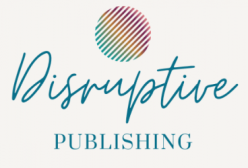
Is having a clear and meaningful direction in your life that aligns with your values, your passions, and your strengths something that matters to you?
In my work with authors, I have found that living on purpose and following their calling is something that matters a great deal. It certainly matters to me.
Being on purpose means you are living intentionally and with a deep sense of purpose, where every action you take and every decision you make is guided by your personal mission and goals.
Being on purpose requires you to have a deep understanding of yourself, and that you have the ability to use that knowledge to make conscious choices that lead to a fulfilling and purposeful life.
It requires that you are being fully present in each moment, and that you are engaging in activities that are meaningful and aligned with your vision for your life.
When you are on purpose, you feel a deeper sense of satisfaction and fulfillment in your life, as you are using your talents and skills to contribute to something greater than yourself. It gives you a sense of direction and focus and provides a sense of meaning and purpose that can help you overcome any obstacles and challenges that come your way with greater ease.
There are many reasons why this might be important to an author.
Living a life that is aligned with your values and passions brings a sense of fulfillment and satisfaction, which can contribute to your overall happiness and well-being.
When you have a clear sense of purpose, you know where you are going, and you can focus your energy and resources on what matters most to you.
Being on purpose can help you stay motivated and resilient in the face of challenges and setbacks, as you have a clear sense of why you are doing what you are doing.
Living a purposeful life often involves contributing to something greater than yourself, such as your community, a cause, or a mission. This can bring a sense of meaning and fulfillment and can also have a positive impact on society.
Being on purpose often involves stepping out of your comfort zone and taking on new challenges and opportunities, which can lead to personal growth and development.
Being on purpose can also make us better and more engaging writers.
When we are on purpose, we have a clear understanding of what we want to communicate to our readers. This can help us write with greater clarity and focus, as we are able to convey our message in a way that is aligned with our purpose.
Being on purpose means being true to ourselves and our values. This can help us write with greater authenticity, as we are able to express our unique voice and perspective in our writing.
When we are on purpose, we are more likely to be motivated to write, as we have a clear sense of why our writing matters and how it contributes to our overall purpose.
Writing that is aligned with our purpose is more likely to be relevant and meaningful to our readers. This can help us connect with our audience and create a lasting impact through our writing.
Being on purpose can also stimulate our creativity and inspire us to explore new ideas and approaches in our writing.
So, what can we do to feel more on purpose?
Getting on purpose involves a process of self-discovery and alignment with our values, passions, and strengths.
Here are 6 steps that can help you get on purpose:
- Define your values: Start by identifying your core values and beliefs. These are the principles that guide your decisions and actions. Take some time to reflect on what matters most to you and what you stand for.
- Identify your passions: Think about the things that bring you joy and fulfillment. These are the activities that you enjoy doing and that make you feel alive. Identify your passions and consider how you can incorporate them into your daily life.
- Discover your strengths: Identify your unique strengths and talents. These are the things that you are naturally good at and that come easily to you. Consider how you can use your strengths to make a positive impact in the world.
- Craft your mission statement: Based on your values, passions, and strengths, craft a clear and concise mission statement that summarizes your purpose in life. This can serve as a guide for your decisions and actions.
- Take action: Once you have defined your purpose, start taking action towards living a purposeful life. This can involve setting goals, making changes to your daily habits, and seeking out opportunities that align with your purpose.
- Reflect and adjust: Regularly reflect on your progress and adjust your actions as needed. Getting on purpose is a journey, and it requires ongoing reflection and adjustment.
By following these steps, you can start to get on purpose and live a more fulfilling and purposeful life and I promise that will reflect in every word you write.
If you would like some company and some support on your journey, join us in the FREE 30 Day Book Writing Challenge. We’re all about living life on purpose.
